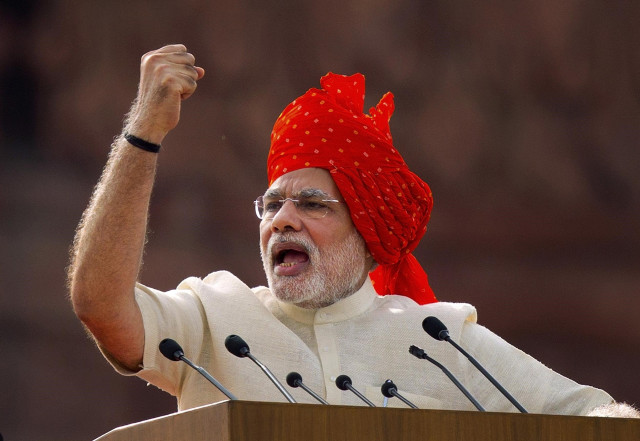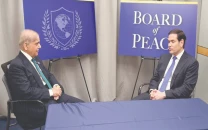Indian prime minister reviews Indus Waters Treaty
Indian premier had recently threatened to isolate Pakistan diplomatically, accusing it of perpetrating the Uri attack

Indian Prime Minister Narendra Modi. PHOTO: AFP
In a meeting, the Indian premier reportedly zeroed in on adopting an aggressive strategy to raise pressure on Pakistan. The move came days after he threatened the nation with global 'isolation' following the recent Uri attack.
India has been deliberating on the pros and cons of action on the 1960s water treaty between the two nations as a strong response to the separatist attack in Indian-occupied Kashmir which left 18 Indian soldiers dead, according to NDTV. India accused Pakistan of being involved in the attack, a charge the latter denied.
Officials say an assessment of the Indus treaty is bound to factor in China, where the river Indus originates. Unlike India and Pakistan, China has not signed any international water sharing agreement.
Earlier, quoting a senior government official The Hindu said: "It is only a meeting to assess the Indus Waters Treaty. The Prime Minister will discuss the pros and cons of turning off the tap to Pakistan.”
Congress tells Modi to bring own house in order before advising Pakistan
Separately, the Indian Supreme Court has refused to hear a petition challenging the validity of the treaty on an urgent basis. “Keep politics aside. The matter will come in due course,” the bench responded when the counsel for the petitioner called for an urgent hearing.
The 1960 Indus Water Treaty is a water-sharing treaty between the two countries, brokered by the World Bank. Under the accord, India can use water from the three eastern rivers Sutlej, Beas, and Ravi, while Pakistan has exclusive rights over the three western rivers Indus, Chenab and Jhelum.
Modi threatens to 'isolate' Pakistan globally
Pakistan and India have been involved in a tense verbal and diplomatic spat after 18 Indian military personnel were killed in an attack on Uri's Srinagar military base near the Line of Control (LoC) on September 18.
The assault was among the deadliest in held Kashmir and sharply ratcheted up tension between the two nuclear-armed rivals. Tension has been rising between the two arch rivals since the July 8 killing of Hizbul Mujahideen (HuM) commander Burhan Wani. At least 100 demonstrators have been killed since then due to indiscriminate use of force against Kashmiris by Indian forces.



















COMMENTS
Comments are moderated and generally will be posted if they are on-topic and not abusive.
For more information, please see our Comments FAQ